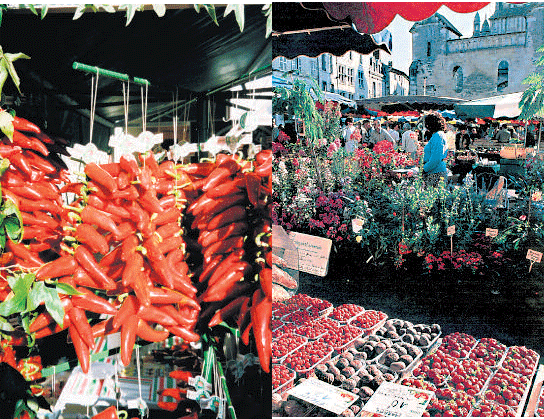A region rooted in gastronomy

Your support helps us to tell the story
From reproductive rights to climate change to Big Tech, The Independent is on the ground when the story is developing. Whether it's investigating the financials of Elon Musk's pro-Trump PAC or producing our latest documentary, 'The A Word', which shines a light on the American women fighting for reproductive rights, we know how important it is to parse out the facts from the messaging.
At such a critical moment in US history, we need reporters on the ground. Your donation allows us to keep sending journalists to speak to both sides of the story.
The Independent is trusted by Americans across the entire political spectrum. And unlike many other quality news outlets, we choose not to lock Americans out of our reporting and analysis with paywalls. We believe quality journalism should be available to everyone, paid for by those who can afford it.
Your support makes all the difference.At the brilliantly conceived and executed Musée Gallo-Romain in Périgueux, the the attraction of Aquitaine becomes evident. Even two millennia after the Romans arrived in this corner of Gaul, the motifs speak of a land of plenty, from fish to grapes (a welcome Roman innovation). And one of the many blessings of Périgueux is that you can wander through a town that is rooted in gastronomy.
Périgueux is the main town of the département of Dordogne, but this is a Napoleonic affectation for the Périgord – a name synonymous with good food. Indeed, guides registered with the Ministry of Culture offer tours with a pastry cook through the city or a gastronome who can point out nuances of the markets.
Poultry is the strongest suit in Périgord, with foie gras from duck and goose served in all kinds of guises: as pâté, with truffles (another local speciality) or in a sauce. From mid-November until late March, Place St-Louis hosts a duck and goose market each Wednesday and Saturday, 8am-1pm. To complement the rich pâté, wander into the Place de la Clautre (beside the cathedral) – or the squares of Coderc or the town hall, any Wednesday or Saturday morning. Themarket is a feast for the senses, from the blush of freshly picked vegetables to the aroma from a dozen cheeses. Add in the scent of fresh bread from the bakeries in the old town, and you have the recipe for a perfect picnic.
Where to enjoy it? In the only urban park bequeathed by the Romans. The Jardin des Arènes is marked on the mapas a circle – but only when you get there do you discover why. The remains of a large amphitheatre, to match the scale of Arles, are scattered around a park that is draped in greenery and punctuated with sculptures – such as a lilac door to nowhere. It was built in the 1st century AD, and could hold 20,000 spectators.
Close by is the remarkable Vesunna temple, providing rail travellers on the adjoining main line with a glimpse of monumental aspirations from 19 centuries ago.
To return to the roots of good food, explore elsewhere in Aquitaine. An excellent starting point is the Château de Belloc in Sadirac, which has both a museum and a maze devoted to ancient eating habits. Oh! Légumes oubliés may be a startling name – but the range of vegetables that many have forgotten is fascinating. To remember the source of our food, head for Beaumont in July or August when – each Tuesday at 2pm – a local farmer will take you on a journey of exploration through the fields and farmyard.
Elsewhere in Aquitaine, the local diet is informed by the surroundings. Along the Atlantic, the mingling of river and sea water creates a breeding ground for oysters – with Cap Ferret, opposite Arcachon, an excellent candidate.
Further south, Basque fishermen bring back a marine harvest that will be augmented with fiery peppers from Espelette. The capital of the French Basque lands, Bayonne, bestows its name on France’s finest ham – whose intense flavour derives from drying in the ocean breeze. Round off a meal with sheep’s milk cheese and Basque cake – a sweet gateau that provides the calories for many a hiker in the Atlantic Pyrenees.
Most markets are daytime affairs, but on long summer evenings Aquitaine’s towns come alive with “night markets” that add a delicious dimension. Every Friday night in June, July and August the night market at Vianne runs from 6-11pm, specialising in local crafts. Meanwhile in Dax on 8 August, gourmets congregate at 6pm on the Promenade des Remparts to devour regional produce, watch stilt-walkers and view a son et lumière display.
Join our commenting forum
Join thought-provoking conversations, follow other Independent readers and see their replies
Comments